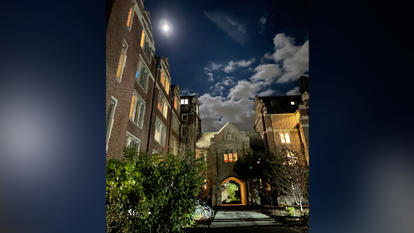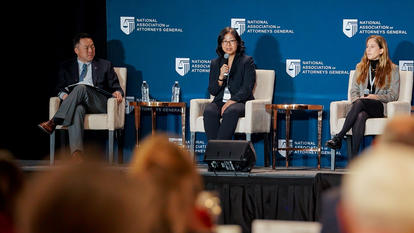Wellesley Senior’s Research Looks at Effects of Trends in Boston’s Luxury Condo Market

Boston is experiencing a boom in luxury real estate, but many of the buyers are investors or part-time residents, which could have negative consequences for the city, according to Towering Excess: The Perils of the Luxury Real Estate Boom for Bostonians, a report co-authored by Emma de Goede ’19, who interned at the D.C-based think tank Institute for Policy Studies.
De Goede, an economics major, worked on a team led by the report’s co-author, Chuck Collins, a senior scholar at the institute. Their research indicated that while the boom has economic benefits in terms of job creation and increased tax revenue, they write, it also has some significant downsides for Bostonians: “Boston’s luxury boom figures to push up land and housing costs and accelerate Boston’s already troubling disparities of income, wealth and opportunity.” Among the issues they raise in the report are:
- Land and housing costs will increase, exacerbating competition for affordable and moderately priced housing.
- Luxury construction will draw wealthy white and international buyers, which will raise already existing inequity of income, wealth, and opportunity.
- Luxury buildings resemble vertical gated communities, separating wealthy residents from surrounding communities.
Collins described de Goede’s involvement in creating the report. “She tapped her math skills and economic training to look at property records, deeds, real estate listings, and corporate ownership websites,” he said.
“She also researched policy solutions around the world, helping me prepare for a Boston City Council hearing. Her research work was so central she is listed as a co-author. This report has touched a nerve—leading to a week of intensive debate and discussion.”
De Goede said she accepted the internship knowing that she would have a chance to use the data analysis and economic research skills she developed at Wellesley, “but I had no idea the extent to which I would be researching the housing crisis,” she said.
Also unexpected, she said, was learning the effect on a building when a high number of units are owned by nonresidents. Collins and de Goede analyzed property records from 1,805 condos from 12 completed luxury building projects. Thirty-six percent of the condo owners requested the property tax exemption the city allows homeowners. That 64 percent did not claim the exemption is considered a strong indicator that the owners do not actually live in their units, the report said.
“I was surprised by the lack of residency in luxury buildings that are promoted as ‘communities in the sky,’” she said. “They are not primary homes. These buildings are far more comparable to ghost towns than they are to integrated communities.”
De Goede said what she learned from her research made her deeply distressed about inequality in the United States. “There is so much potential action that can be taken,” she said, “but in order to do so we must educate ourselves and others on the staggering realities of inequality, not only in the housing market but in the economy as a whole.”



